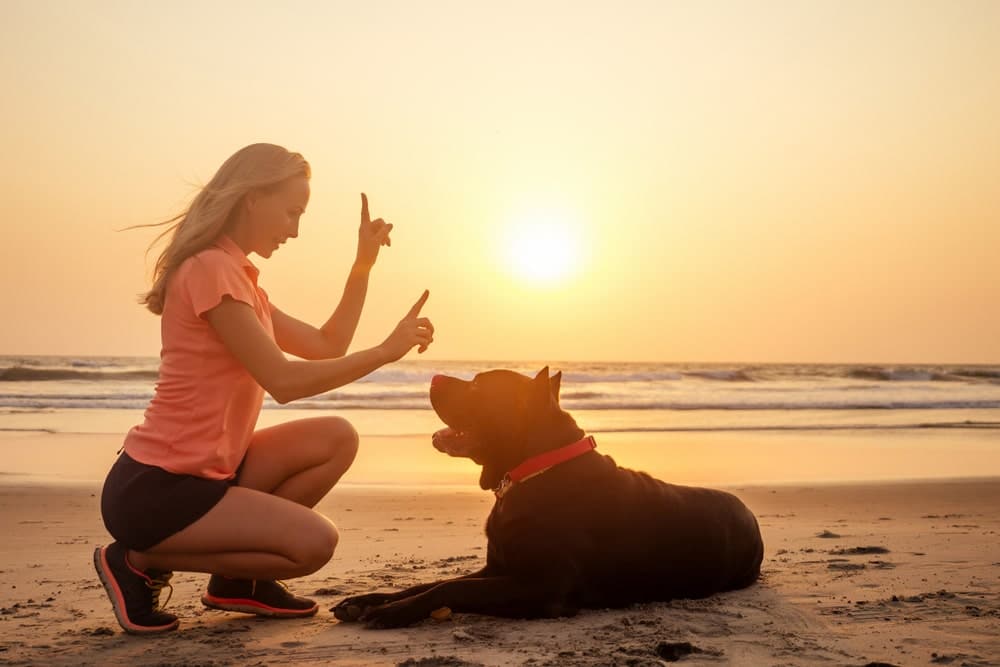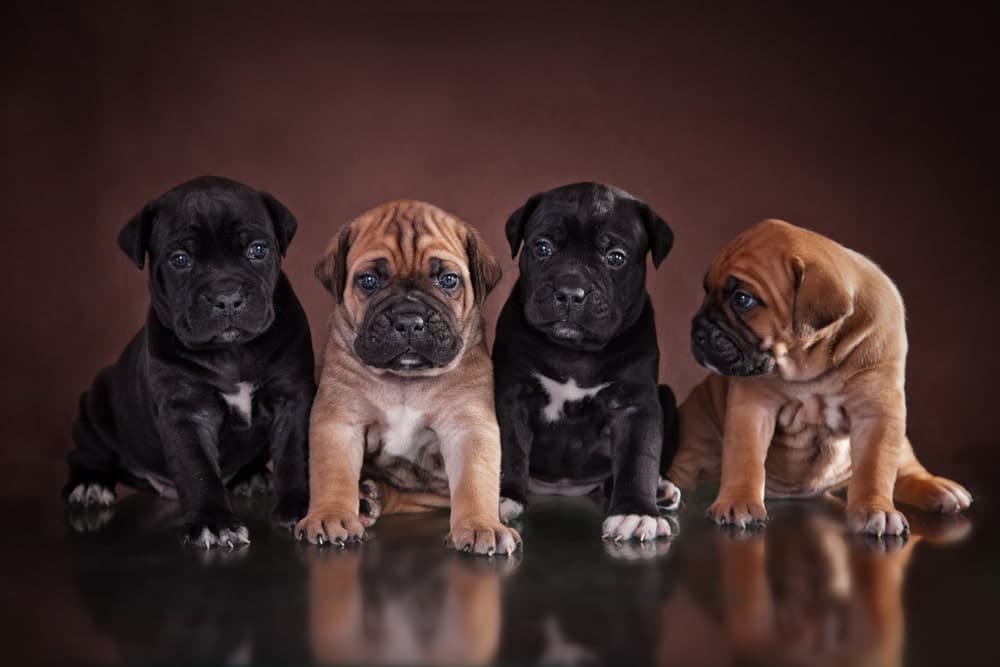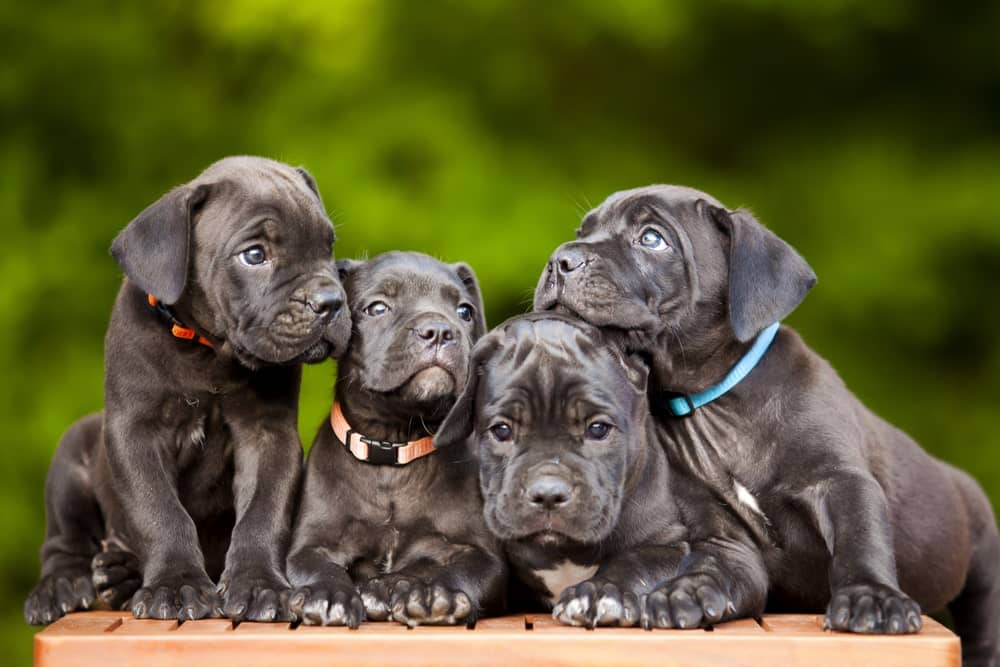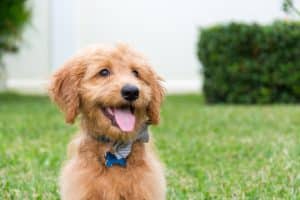The Journey of Owning a Cane Corso
The Cane Corso is a magnificent breed known for loyalty, athleticism, and a protective nature. If you’re considering bringing one into your life, here’s what you need to know:
Understanding the Breed
- Origins: Descended from ancient Roman war dogs, possessing guarding and hunting instincts.
- Appearance: Powerful build, rectangular body, short coat in various colors.
- Temperament: Intelligent, trainable, eager to please, but also independent and naturally protective.
Is a Cane Corso Right for You?
- Experience Level: Best suited for experienced dog owners who can provide strong leadership and consistent training.
- Lifestyle: Requires ample exercise, mental stimulation, and dedicated time for training and socialization.
- Household: Can be great with children if well-socialized but may be assertive with other pets.
Preparing for Your Cane Corso
- Finding a Reputable Breeder: Prioritize breeders who conduct health testing and focus on sound temperament.
- Essential Supplies: High-quality food, kennel, toys, cleaning supplies, leash, collar, etc.
- Puppy-Proofing Your Home: Secure potential hazards and create a designated space for your dog.
The First Days at Home
- Initial Adjustment: Your puppy might be shy and overwhelmed. Give them time to adjust.
- Introductions: Introduce family members gradually.
- Routine is Key: Establish a feeding, potty, and playtime schedule.
Training and Socialization
- Start Early: Begin training basics (sit, stay, come) when your puppy is young.
- Positive Reinforcement: Reward good behavior and redirect unwanted ones.
- Socialize Thoroughly: Expose your puppy to different people, places, and other dogs in a controlled manner.
- Seek Professional Help: Consider obedience classes or a qualified trainer for guidance.
Health and Nutrition
- Proper Diet: Feed high-quality food appropriate for large breed puppies and adults.
- Regular Vet Visits: Maintain vaccinations and checkups. Be aware of breed-specific health concerns.
- Exercise: Provide ample daily exercise (walks, playtime, mental stimulation) to maintain health and prevent boredom.
Grooming
- Brushing: Regular brushing minimizes shedding and keeps the coat healthy.
- Bathing: Bathe as needed with dog-specific shampoo.
- Nail Trimming: Keep nails trimmed to prevent discomfort.
Growing Up with Your Cane Corso
- Continued Training: Reinforce good behaviors and address challenges.
- Mental Stimulation Provide puzzle toys, training sessions, and new experiences.
- Health Monitoring Stay vigilant about potential health issues.
Key Takeaways
- Owning a Cane Corso is a rewarding commitment.
- Early training and socialization are crucial for a well-adjusted dog.
- Proper care and attention will ensure your Cane Corso’s health and happiness.
- With dedication, you’ll build a strong bond with this loyal and affectionate breed.
Remember, a Cane Corso is not for everyone. Do your research and honestly assess your ability to provide the necessary care and training before bringing one into your family. If you’re prepared, a Cane Corso can be an incredible companion.
Contents
Common Physical Features of a Cane Corso Puppy
The Cane Corso is a medium to large dog breed specially bred to hunt big game. They have strong lean muscle tone, yet possess some elegance, agility, and quick reactions.
The silhouette is rectangular, the length of the body exceeds the height at the withers by 11%, and the length of the head is approximately equal to 36% of the height.
The morphological characteristics of the Cane Corso confirm that it is primarily a working breed, focused on protection and guarding.
Height at the withers of males – 64-68 cm; weight – 45-50 kg. The height of bitches is 60-64 cm; their weight – is 40-45 kg. The life expectancy of Cane Corso is 10 – 12 years.
The head is large, molluscoid type. The skull is broad with a convex forehead, which flattens slightly towards the occiput. A visible furrow runs from the middle of the skull to the end.
The bridge of the nose is straight. The lobe is black, and large with well-opened nostrils. The eyes are oval, of medium size, and the color is as dark as possible. The eyelids are tight.
The ears are medium in size, triangular in shape, hanging down, set above the zygomatic arches.
The jaws are large, powerful, and curved. The lips, when viewed from the front, resemble an inverted U, when viewed from the side, hang down slightly, covering the lower jaw and forming the lower profile of the muzzle.
The neck is muscular, its length is equal to the length of the head. The body is built firmly with pronounced withers, which are above the level of the croup. The back is straight and strong.
The tail is set high, thick at the base, and does not curl or stand upright. The limbs are strong, elastic, straight, and parallel. The paws are cat-like, well built, and the hind legs are slightly less compact than the front ones.
The coat is short, and very dense with a sparse undercoat. The molt is expressed moderately. In dogs that live in a house or apartment, it is observed year-round. There is no specific smell. Color black, light gray or lead gray, dark fawn or light fawn, red, fawn, wheaten. White spots are allowed on the chest, fingers, and bridge of the nose.
Preparing for Your Cane Corso Puppies
Do you know how you can prepare yourself to raise a Cani Corsi dog? Although these dogs are normally intensely loyal, you need to pay attention to a few things before adopting or buying a Cane Corso dog.
Choosing the Right Breeder
Make sure you adopt or buy a Cane Corso from a reputable breeder only. Because only reputable breeders can make sure that you get a purebred Cane Corso as per the American Kennel Club (AKC).
Moreover, reputable breeders make sure that their dogs are checked regularly with health tests and provide vaccinations on time. So, to make the right choice, find the right breeder first.
Necessary Supplies and Equipment
Before you adopt or buy a Cane Corso, make sure you have these necessary supplies and equipment at home or you at least have easy access to these necessary supplies and equipment. Here is a list of the necessary supplies and equipment.
- High-quality dog food
- Large kennel for shelter
- Food and water bowls
- Cleaning supplies
- Potty pads
- Mental stimulation
- Sturdy leash
- Playtime toys
- Chew toys
- Puzzle toys
- Strong collar
- Nail clippers
- Dog shampoo and conditioner
- Brush
- Home dental products
- Training treats
- Poop bags
- Muzzle
- Dog bed
Preparing Your Home for a Cane Corsos
So, you have decided to add a Cane Corso to your family. Best of luck! This majestic Neapolitan Mastiff breed is full of personality, loving, and loyal. However, before you can enjoy all those slobbery kisses from your CaneCorso, there is some preparation that you should need.
Here are a few things you need to do before you bring your new Cane Corso home:
- Ensure your house is puppy-proofed – remove all possible dangerous stuff
- Create a specified space for your affectionate Cane Corso dog
- Buy some high-quality dog toys
- Keep the mess out of your Cane Corso’s reach
- Close any room you do not want the Cane Corso to enter
- Secure the dog in a safe place in your house until the dog grows up a little
- Create a particular place for your puppy to eat food
- Consider obtaining a pet insurance
- Make sure your pup will lead an active social life with proper obedience training from a professional trainer
- Hang a signboard on your entrance for strangers awarding them about your dog and its barking
- Make sure your children and other animals at home are okay with Cane Corso puppies
The First Few Days with Your Cane Corsos
Do you know what to expect from your puppy in the initial days or how to get along with a new puppy of these Cane Corso breeds? Let’s know here…
Bringing Your Puppy Home: What to Expect
Any family’s life will become more thrilling when they bring home a new dog. Aside from parenting a real child, raising a dog can be among the most delightful and fulfilling experiences. But it’s crucial to be realistic about what you can expect when taking a new puppy home because raising a dog is not all fun and games.
It is traumatic to remove a puppy from his littermates, his mother, and the only place he has ever known. As soon as you first get home, the dog will be silent, tense, and affectionate because he is so terrified.
- He May Not Start Eating Right Away
- Your Pet Doesn’t Automatically Know What Is Expected of Him, So You Need To Teach Him
Introducing the Puppy to Your Home and Family
The first thing you should do after bringing a Cane Corso home is to introduce it to your home and family. However, do not hurry. Introduce your family members one by one. Or else the puppy will be puzzled and will show tantrums and also bark. He will take time for making friends with your family.
Establishing a Routine
Soon after introducing your dog to your home and family, it is now time to prepare a routine for your dog. Following the routine, you Cane Corso will learn what to do, when to do it, and how to do anything at your house.
Training Your Cane Corsos

Training your Cane Corso is very important. Because Cane Corsos are mainly guard dogs who are used to protect livestock. They excel at tracking, agility, protection sports, obedience, nose work, and dock diving. So, to help your Cani Corsi dog to be polite around your family members, strangers, and also other animals, you should train him properly.
The Importance of Early Training
There’s always a time for the beginning of something, and for a perfect training of a Cane Corso puppy, the dog owner also has to start the training of the canine at a perfect time. Since they adapt to things quickly when young, it is advisable to start their training when they learn about things around them.
As per the research, the best time a Cane Corso puppy will be able to learn all the things efficiently is the age of two to thirteen weeks of its age. Things learned during this period will stay throughout their entire lifetime. This training has been curated keeping in mind a few facts about Cane Corso.
Basic Commands to Teach Your Puppy
Some of the most common or basic commands that you should teach your Cani Corsi are as follow:
- Teach to Come When Called: For this, you can use commands like “Come”, Call him by his “Name”. If your dog responds to these commands, then treat him with dog treats.
- Teach Loose-Leash Walking: When you go for long walks with your dog, a tight leash or collar for the dog will hurt them. So, you need to train him to walk on a loose leash. For this, you can stand next to your Cane Corso dogs with the loose leash in a loop and provide them with many treats in a row for sitting or standing next to you.
- Teach To Sit: Use the “Sit” command to teach your dog to sit down. Whenever your dog sits down after getting your command, treat him and repeat the procedure.
- Teach Your Dogs To Stay In One Place: Use the command “Stay” or “Stop” to make your dog stay at a place. This way, he will learn when to walk and when to stop.
- Teach Your Dog To Lie Down: The “lie Down” command can be trained very similarly to the command “sit.”
Socialization Techniques for a Cane Corso Puppy
Socializing your dogs means training them to be well-behaved. Socialization helps the dogs be relaxed in new circumstances and keeps them convinced of new circumstances. You can use these techniques to socialize your dogs:
- Take him for a walk daily to meet people and other dogs
- Take him for bicycle rides with you or trekking to meet new people
- Let these intelligent dogs play with your children and other pet in your house.
- Let them greet strangers along with you to learn strangers are okay.
- Whenever your dog barks at strangers let him know whether it is right or not.
Addressing Common Behavioral Issues
Dog owners frequently misunderstand or improperly address their dog’s behavior issues. Maybe you’ve never owned dogs before, are thinking about obtaining one, or just want to support your dogs through a difficult situation. The first step to resolving and preventing dog behavior issues is addressing the most prevalent issues. Here are some issues you may encounter:
Barking:
A few most common varieties of barking of these puppies are as follows:
- Playfulness & excitement
- Boredom
- Alert or warning
- Anxiety
- Attention-seeking
- Responding to strangers or other dogs
Chewing:
The most common causes that make dogs chew things like furniture include the following:
- Excess energy
- Boredom
- Puppy teething
- Curiosity (rare in adult dogs)
- Anxiety
Digging
In general, puppies dig for the following reasons:
- Anxiety
- Fear
- Comfort-seeking
- Boredom
- To gain access to or escape from an area
- Excess energy
- Hunting instinct
- Desire to hide possessions
Separation Anxiety
Signs of separation anxiety in Cane Corso include the following:
- The dog becomes nervous when the owner leaves.
- Misbehavior happens in the initial 15-45 min after you leave the house
- The dog wishes to constantly follow your around
Inappropriate Elimination
Inappropriate defecation and urination are one of the most irritating dog behaviors. If the vet can’t find any problem, try to resolve the cause of the behavior by noticing the following signs:
- Territorial marking
- Submissive/excited urination
- Lack of proper housebreaking
- Anxiety
Health and Nutrition

You need to pay close attention to your Cane Corso’s nutritional needs to make sure your dog stays healthy. This large dog breed needs more food and care than small ones. So, let’s learn more about its health and nutrition below:
Recommended Diet for a Cane Corso Puppy
Puppies need to eat four meals a day, and by adulthood, they should only be eating two. To avoid bloating, avoid eating big meals. At around 12 months or older, transition to adult food. 6 to 9 cups should be consumed daily by an adult Cane Corso.
Common Health Issues and How to Prevent Them
The majority of Cane Corsos are in good health conditions, and ethical breeders continuously check their pups for ailments like hip dysplasia, Demodex mange, bacterial diseases, idiopathic epilepsy, and atypical eyelids. Moreover, bloating, an unexpected, -possibly fatal gastrointestinal condition, is more likely to impact deep-chested and large breeds like Cani Corsi.
Cane Corso owners should get acquainted with any warning signals as well as should know what to do in case any health issue appears. Just like any other breeds, Cane Corsos must have their ears often examined for signs of infection, and their teeth should be brushed often using dog-specific toothpaste.
Exercise and Playtime Of Cane Corso

Exercise is a vital part of Cane Corso’s life. Their muscular tone and health will be supported by taking regular walks—or, even better, a run—of at least 1 mile in the morning and 1 mile in the evening. They’re an excellent participant in excursions, cycling journeys, or extended strolls.
Recommended Toys and Activities
Finding appropriate toys and activities can be hard, however, we are here to help you. Here are a few recommended toys and activities for your Cane Corsos
- Rubber Ball Tough Dog Toy
- Dog Chew Toy
- Hartz Dura Play Ball
- Benebone Bacon Flavor Wishbone
- JW Pet Champion Dog Toy
- Chuckit Ultra Rubber Ball
- KONG Puppy Chew
- Fetch toys
- ZippyPaws Skinny Peltz Plush
- Rope or tug-of-war toys
Benefits of Regular Play and Exercise
The Cane Corso dog was mainly developed being a working dog as well as pleased when given a task. This dog must be physically and mentally stimulated regularly to avoid acting out. Many Cane Corsos take part in dock diving, agility, tracking, obedience, and also protection sports contests. So, regular play and exercise help them stay healthy and happy.
Grooming Your Cane Corso Puppy
Short but double-layered, Cane Corso’s coat has two layers. The undercoat sheds all year long, however, it sheds more heavily in the spring. The undercoat’s length fluctuates according to the environment in which the dog lives. Thus, it is important to take good care of your Cane Corso’s grooming sessions.
Recommended Grooming Tools
Weekly brushing using a rubber grooming mitt or tool, a medium-bristle brush, or a hound glove removes the dead hair before the hair can fall onto your carpet or furniture and also helps eliminate filth and encourages the growth of new hair.
Tips for a Stress-Free Grooming Session
Daily brushing is recommended during the shedding season. As with all dog breeds, the nails must be occasionally cut because extremely long nails can harm your pet and make it challenging for it to walk and run.
If you do daily brushing, your dog will be familiar with the fact and won’t be stressed during grooming sessions.
The Journey Ahead: Growing Up with a Cane Corso
Your dog will grow with you and will build a stronger bond than ever before. These intelligent, loyal dog breeds are extremely eager to please the owner, so with time, you will feel more affectionate towards this dog breed. However, even after training your dog in its puppy phase, you should continue to train and socialize your pup.
Continuing Training and Socialization as Your Cane Corso Matures
With time, you can’t ignore your dog’s training or socialization. Or else, your pup may start misbehaving around unknown people and other pets. So, consistency is the key here. You should keep on training and giving physical and mental stimulation to your Cane Corso.
Maintaining Health and Fitness in Adulthood
Along with continuous training and socialization, you should also pay close attention to your dog’s health and fitness in adulthood. For this, make sure your pup eats right and does perform daily required exercise.
FINAL WORDS
Although early puppy training sessions and socialization are advised for all dogs, they are essential for a breed as large and powerful as a Cane Corso. Socialization will aid Cane Corsos, who are continually protective and domineering, to develop into a well-adjusted, polite adult.
These dogs won’t take charge of the home if they’re taught to obey the owner properly. They are usually easy to train as they’re eager to please and bright dog breeds. Cane Corso dogs, despite their external look, are strong dogs who respond better to rewards and affection than to severe training techniques or corrections.







